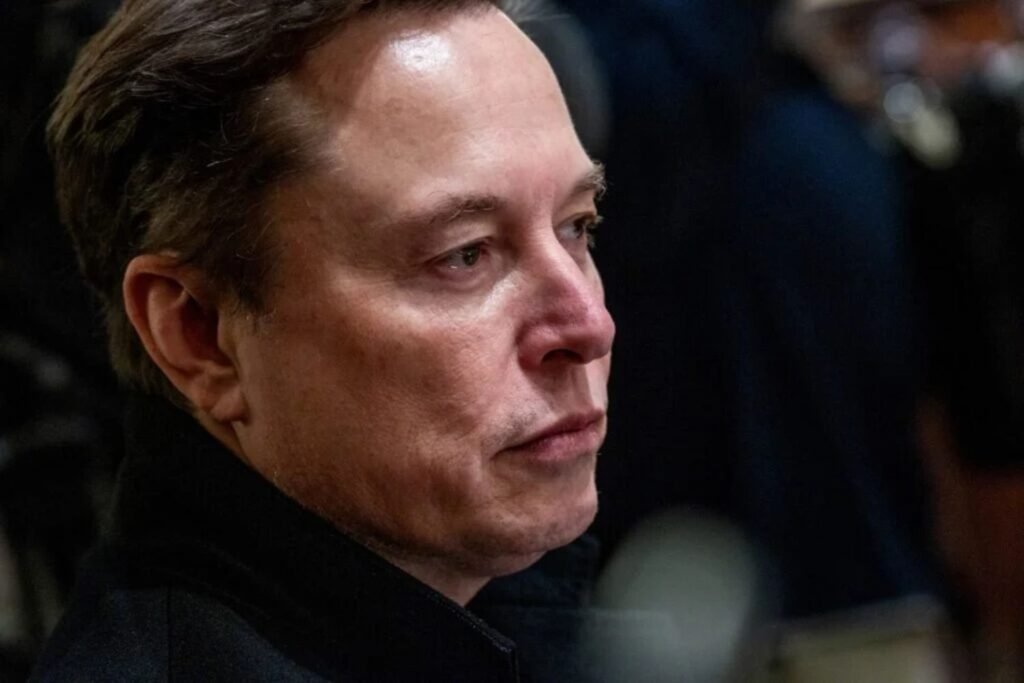Elon Musk’s Deep Blues After Tesla’s Earnings Plummet by 71%

Tesla kicked off the year with disappointing numbers, experiencing a significant 71% drop in quarterly earnings. Beyond the financial data, Elon Musk’s demeanor during the earnings call hinted at a troubling situation unfolding. With a crisis in business strategy, controversial political alliances, and a future clouded by technological uncertainty, the magnate’s image appears to be faltering.
### A Quarter to Forget at Tesla
The electric vehicle sales took a hit, resulting in a 71% decline in profits for Tesla in the first quarter. Revenues amounted to $19.3 billion, down by 9% compared to the previous year. Despite producing 362,000 vehicles and delivering over 336,000, Model 3 and Model Y deliveries saw a 12% decrease. The Cybertruck numbers, although not officially disclosed, suffered a 24% drop, reflecting the negative impact of Musk’s controversial public persona.
### A CEO Without Enthusiasm and Unclear Promises
During the earnings call, Elon Musk presented a subdued and defensive tone. While trying to mitigate the impact of the numbers with announcements of upcoming services in Texas by June, he clarified that these would not be the anticipated “Cybercabs” but simple Model Y adaptations. The adjusted earnings per share fell short at just 27 cents, well below the expected 41 cents by analysts. The only silver lining was the $595 million from carbon credits that prevented Tesla from reporting operating losses.
### DOGE, Trump, and Politics as a Distraction
While Tesla’s financial situation falters, Musk remains entangled with the DOGE (Department of Governmental Efficiency), an entity responsible for major layoffs in 27 U.S. government agencies. Musk’s involvement, particularly in the context of accusations of undermining essential services, has raised concerns. During the earnings call, Musk attributed protests against him as organized and funded by those seeking to maintain fraudulent state benefits. He also announced his pending departure from DOGE in May but confirmed his continued ties to the government throughout Trump’s presidency, even beyond its legal tenure.
On this occasion, Musk reiterated the launch of autonomous taxis in Austin by June but evaded clarifying the remote control mechanisms necessary for their operation. The autonomous driving community remains skeptical about the realization of large-scale Cybercabs, estimating potential delays of decades, if they ever come to fruition.
### Social Reaction and Image Decline
The shift in public opinion towards Musk has been evident through protests outside Tesla dealerships, acts of vandalism, and federal charges of terrorism against some protesters. His image has transitioned from a disruptive innovator to an authoritarian figure with questionable affiliations. Technological promises like Optimus robots in factories by 2025 or fully autonomous driving lack substantial details, fostering more skepticism than excitement among the public. This decline in Tesla’s public image and that of its CEO could be directly influencing consumer purchasing decisions.
### A Revolutionary Move or an Announced Collapse?
Musk’s endeavors are portrayed as a “revolution,” yet many view them as a direct challenge to the foundations of the American system. Despite claims of aiming for efficiency, the cuts have impacted programs like social security, sparking concerns about potential future repercussions. With waning enthusiasm for Tesla amidst lackluster financial performance, unmet promises, controversial political affiliations, and erratic leadership, the company’s future—and that of its founder—remain uncertain.




